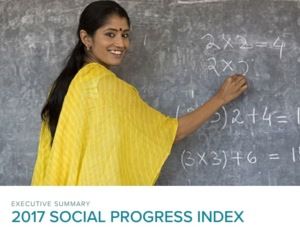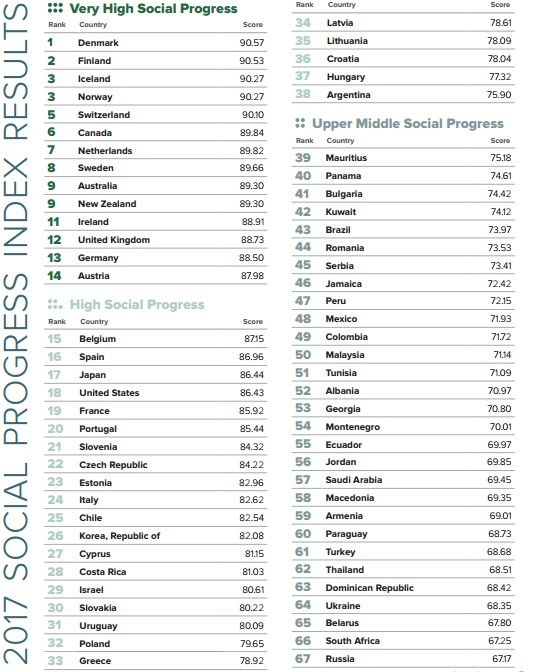News
Denmark is the top ‘quality of life’ nation in the world
This article is more than 8 years old.
Social Progress Index ranks Denmark first in Nordic ‘celebration’

It all adds up to a win for Denmark (photo: Social Progress Index)
According to the Social Progress Index (SPI), Denmark is the best nation in the world based on the quality of life it offers.
Produced annually by the non-profit organisation Social Progress Imperative, the SPI ranked Denmark first out of 128 nations based on scores in 50 indicators within three categories.
The Danes scored 90.57 out of 100 overall, ranking first in the ‘Basic Human Needs’ category, 5th in ‘Foundations of Wellbeing’ and 8th in ‘Opportunity’.
“Denmark takes the top spot on the 2017 global ranking with strong performance across all the components of the Index,” the index report found.
“It leads the world in Shelter (94.27) and Personal Rights (97.89). It ranks second on Access to Information and Communications (98.49) and Personal Rights (97.89), and ranks third on Personal Safety (93.75). These results are not surprising: Denmark has long been admired for its successful social welfare policies and quality of life.”
READ MORE: Copenhagen still the best bicycle city in the world
Religious underperformance
Denmark ranked first in the world in the following indicators: Access to electricity, Household air pollution attributable deaths, Level of violent crime, Perceived criminality, Political terror, Secondary school enrolment, Mobile telephone subscriptions, Political rights, Freedom of expression, Freedom of assembly, Private property rights, Early marriage, Corruption, Undernourishment, Depth of food deficit, Access to piped water and Rural access to improved water source.
However, not everything was brilliant. The index also pointed to several areas that Denmark was under-performing in, indicators such as Religious tolerance, Life txpectancy at 60, Freedom of religion and Gender parity in secondary enrolment.
The index was pretty much a Nordic celebration, with Finland, Iceland and Norway coming in just after Denmark, while Switzerland, Canada, the Netherlands, Sweden, Australia and New Zealand completed the top 10.
Other notables included the UK (12), Germany (13), Japan (17), the US (18), South Korea (26), Brazil (43), Russia (67), China (83) and India (93).
It was all Africa and the Middle East at the bottom, however. Central African Republic finished rock bottom, followed by Afghanistan, Chad, Angola, Niger, Guinea and Yemen.











































